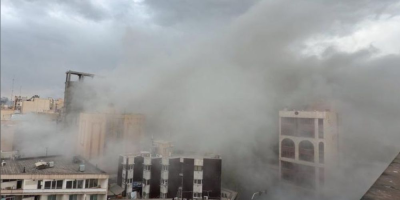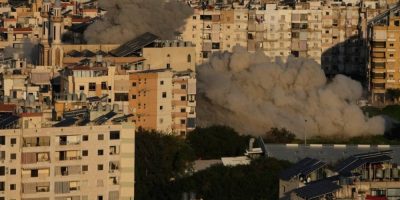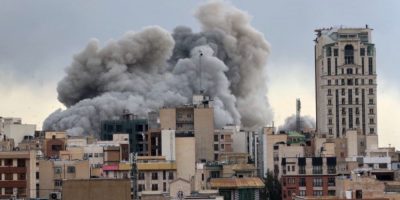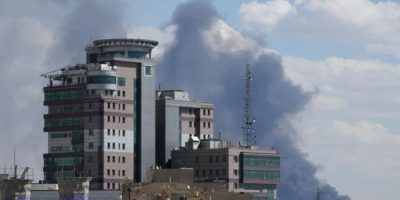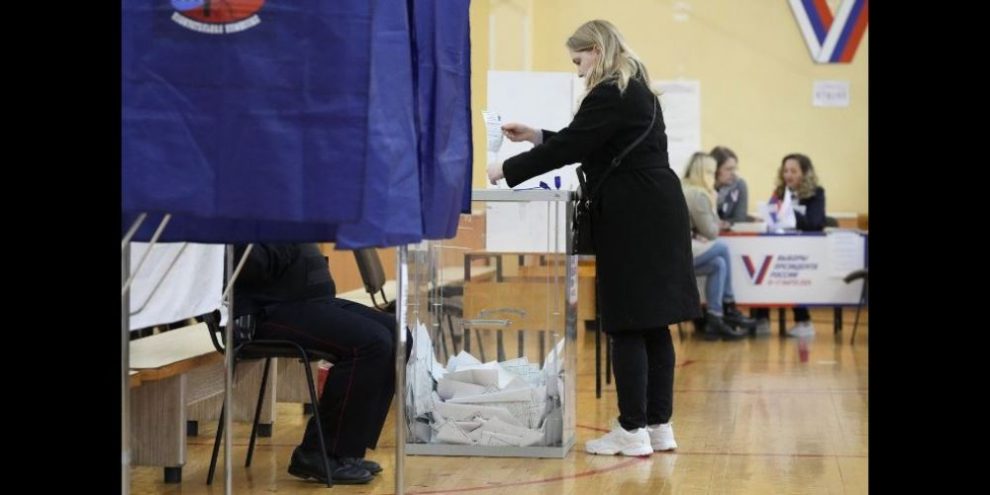
The Associated Press
Russians crowded outside polling stations at midday Sunday on the last day of a three-day presidential election, apparently heeding an opposition call to protest against President Vladimir Putin, who is poised to extend his rule of nearly a quarter century for six more years after a relentless crackdown on dissent.
The election that began Friday has taken place in a tightly controlled environment where there are no real alternatives to Putin, no public criticism of him or his war in Ukraine. Putin’s fiercest political foe, Alexei Navalny, died in an Arctic prison last month, and other critics are either in jail or in exile.
Navalny's associates have urged those unhappy with Putin or the war to protest by coming to the polls at noon on Sunday, a strategy endorsed by Navalny shortly before his death. Team Navalny described it as a success, releasing pictures and videos of people crowding near polling stations in cities across Russia around noon.
The 71-year-old Russian leader faces three token rivals from Kremlin-friendly parties who have refrained from any criticism of his 24-year rule or his full-scale invasion of Ukraine two years ago. Putin has boasted of Russian battlefield successes in the run-up to the vote, but a massive Ukrainian drone attack across Russia early Sunday sent a reminder of challenges faced by Moscow.
The Russian Defense Ministry reported downing 35 Ukrainian drones overnight, including four near the Russian capital. Moscow Mayor Sergei Sobyanin said there were no casualties or damage.
Russia’s wartime economy has proven resilient, expanding despite bruising Western sanctions. The Russian defence industry has served as a key growth engine, working around the clock to churn out missiles, tanks and ammunition.
Voting is taking place at polling stations across the vast country’s 11 time zones, in illegally annexed regions of Ukraine, and online. More than 60 per cent of eligible voters had cast ballots as of early Sunday.
Dmitry Sergienko, who cast his ballot in Moscow, said he voted for Putin: “I am happy with everything and want everything to continue as it is now."
Olga Dymova, who also backed Putin, said, “I am sure that our country will only move forward towards success.”
Another Moscow voter, who identified himself only by his first name, Vadim, said he hopes for change, but added that “unfortunately, it’s unlikely.”
Navalny's associates broadcast footage with comments by those who turned up at the polls at noon to protest Putin, their faces blurred to protect their identities.
“The action has achieved its goals,” Ivan Zhdanov, the head of Navalny's Anti-Corruption Foundation, said in a YouTube broadcast. “The action has shown that there is another Russia, there are people who stand against Putin.”
Another Navalny ally, Leonid Volkov, said that the protest was meant to help unify and encourage those who oppose Putin.
It wasn’t possible to confirm if the voters shown lining up at polling stations in videos and photos released by Navalny's associates and some Russian media had responded to the protest call, or merely reflected strong turnout.
Huge lines also formed around noon outside Russian diplomatic missions in Berlin, Paris, Milan and other cities with large Russian communities. Navalny's widow, Yulia Navalnaya, joined the line at the Russian Embassy in Berlin as some in the crowd applauded and chanted her name.
In Tallinn, where hundreds stood in a line snaking around the city's cobbled streets leading to the Russian Embassy, 23-year-old Tatiana said she came to take part in the protest at noon. “If we have some option to protest I think it’s important to utilize any opportunity,” she said, only giving her first name citing personal security reasons.
Boris Nadezhdin, a liberal politician who tried to join the race on an anti-war platform but was barred from running by election officials, voiced hope that many Russians cast their ballots against Putin.
"I believe that the Russian people today have a chance to show their real attitude to what is happening by voting not for Putin, but for some other candidates or in some other way, which is exactly what I did,” he said after voting in Dolgorpudny, just outside Moscow.
The OVD-Info group that monitors political arrests said that more than 65 people were arrested in 16 cities across Russia on Sunday.
Despite tight controls, several dozen cases of vandalism at polling stations were reported.
A woman was arrested in St. Petersburg after she threw a firebomb at a polling station entrance, and several others were detained across the country for throwing green antiseptic or ink into ballot boxes.
Dmitry Medvedev, a deputy head of the Russian Security Council chaired by Putin, called for toughening the punishment for those who vandalize polling stations, arguing they should face treason charges for attempting to derail the vote amid the fighting in Ukraine.
Some Russian media also posted images of spoiled ballots posted by voters, with “killer and thief" inscribed on one, and “waiting for you in The Hague” written on another, in a reference to an arrest warrant issued for Putin on war crimes charges related to his alleged responsibility for the abductions of children from Ukraine.
Ahead of the election, Putin cast his war in Ukraine, now in its third year, as a life-or-death battle against the West seeking to break up Russia.
Russian troops have recently made slow advances relying on their edge in firepower, while Ukraine has fought back by intensifying cross-border attacks and launching drone strikes deep inside Russia.
The Ukrainian shelling of the city of Belgorod near the border killed a 16-year-old girl on Sunday and injured her father, according to the local governor, who also reported two deaths from Ukrainian attacks the previous day.
Putin described the attacks as an attempt by Ukraine to frighten residents and derail Russia’s presidential election, saying they "won’t be left unpunished.”
Western leaders have derided the election as a travesty of democracy.
Beyond the lack of options for voters, the possibilities for independent monitoring are very limited. No significant international observers were present. Only registered, Kremlin-approved candidates, or state-backed advisory bodies, can assign observers to polling stations, decreasing the likelihood of independent watchdogs.
Banner image via The Associated Press
